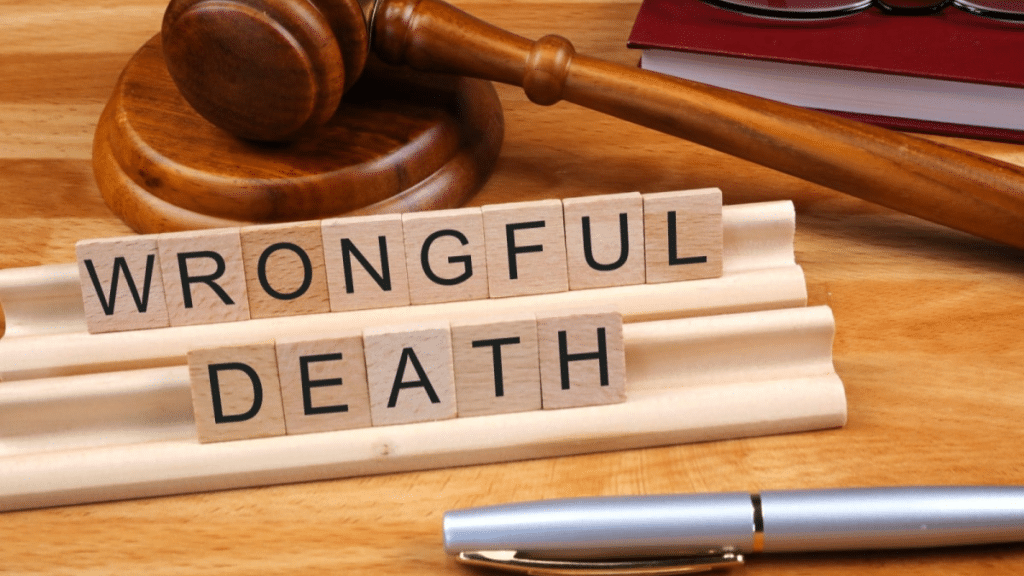You’re grieving. The clock is not.
When someone you love dies because of another person’s carelessness, you don’t just lose them—you lose time. Not metaphorically. Literally. Because while you’re at a standstill emotionally, the law? It keeps ticking.
Wrongful death laws offer families a pathway to accountability and compensation. But there’s a catch—a big one: deadlines.
And missing one could mean you forfeit your right to justice entirely.
Let’s Be Clear—What Counts as Wrongful Death?
If someone dies due to negligence, recklessness, or intentional harm, that can qualify as a wrongful death. Think fatal car crashes, medical errors, workplace accidents, even violent crimes.
But don’t expect the responsible party—or their insurance company—to explain that. (Spoiler: they won’t.)
This is where abogados de muerte por negligencia step in. They know what counts, what doesn’t, and—most importantly—when the clock starts ticking.
So, What’s the Legal Deadline? (And Why Should You Panic Just a Little?)
It’s called a statute of limitations, and in most states, it ranges from one to three years from the date of death. After that, your case might be dead on arrival—no matter how solid your evidence is or how blatant the negligence was.
Let that sink in.
The purpose? Efficiency. The courts don’t want to reopen decades-old cases. But for grieving families, it feels like a cruel race between closure and a calendar.
And here’s where it gets tricky: the deadline doesn’t pause for mourning. It doesn’t pause at all.
Who Can File—and Who Can’t
Wrongful death suits are usually brought by:
- Spouses or domestic partners
- Children or stepchildren
- Parents (especially in cases involving minors)
- Legal dependents
That said, different states define “next of kin” in their own weird ways. One state may welcome a sibling’s claim. Another might slam the door shut.
Again, this is why working with experienced abogados de muerte por negligencia matters—they’ll tell you whether you’re eligible and help gather the documentation to prove it.
What You’re Actually Fighting For
No amount of money can fix the loss. We all know that. But compensation isn’t about replacing the person—it’s about surviving the consequences.
Here’s what a wrongful death claim can cover:
- Medical bills from treatment before death
- Funeral and burial costs (which aren’t cheap—have you priced a casket lately?)
- Loss of future earnings from the deceased
- Loss of companionship and guidance (yes, that’s a thing, and courts recognize it)
- Mental anguish and emotional suffering
If there was gross negligence—or intentional harm—punitive damages may also apply.
Translation: it’s not just about money. It’s about holding someone accountable.
What Happens If You Wait Too Long?
Let’s not sugarcoat it: your case could be dismissed entirely.
Even if you’re 100% in the right. Even if the other side practically confesses. Miss the deadline, and the court doesn’t care.
This is especially heartbreaking in cases where families assumed insurance would handle things “in good faith” or didn’t realize how quickly legal deadlines creep up.
Don’t be one of those families.
Exceptions Exist—But They’re Rare
In some cases, the clock might be paused or extended:
- The death wasn’t immediately recognized as wrongful (think medical misdiagnosis discovered months later)
- The defendant fled or concealed evidence
- The claimant was a minor at the time
These are known as “tolling exceptions.” They’re possible, but they’re also legally dense and hard to argue without help.
A skilled wrongful death attorney knows when and how to invoke them—don’t try this one solo.
Why You Need Legal Backup—Now, Not Later
Wrongful death cases are emotionally brutal and legally complex. The paperwork alone could drive you mad. You’ll need:
- Death certificates
- Medical records
- Accident reports
- Employment histories
- Witness testimony
- Financial projections
That’s before you even step into settlement talks or a courtroom.
The good news? You don’t have to do it alone. Abogados de muerte por negligencia handle these cases with urgency, precision, and an understanding of what your family’s going through.
Final Thought: Time Isn’t Just a Number. It’s Leverage.
In wrongful death law, time can work for you—or against you. The sooner you act, the more options you have. Witnesses remember more. Evidence is preserved. And legal teams can build a stronger case.
So yes, grieve. But also, protect your right to justice.
The system won’t wait. But the right lawyer will walk beside you.
